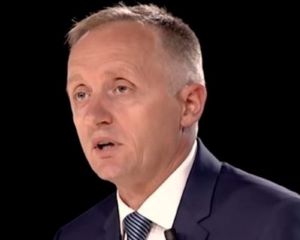Twenty years have passed and much work remains to be done towards EU integration.

Lutfi Dervishi
The June 2003 EU summit in Thessaloniki promised a bright future for the Balkan region, including Albania, no less than EU membership. However, twenty years have passed and much work remains to be done towards EU integration. Albania has made some progress towards meeting EU standards, but much remains to be done.
Albania’s path towards EU integration began in 2006 when the country signed the Stabilization and Association Agreement (SAA) with the EU. This agreement was an important historical moment in Albania’s path to EU membership, as it paved the way for deeper political and economic ties with the EU. The SAA defined the conditions for Albania to receive financial and technical assistance from the EU, as well as access to EU markets.
In 2009, Albania applied for EU membership and in 2014, the EU granted Albania the status of a candidate country. This was another important historical moment in Albania’s EU membership process, as it recognized the progress made by the country towards meeting EU standards. However, this also meant that Albania had to undertake more comprehensive reforms to meet membership requirements.
One of the biggest and most unprecedented reforms in the region is the justice reform.
In 2018, the European Commission recommended that Albania be allowed to open accession negotiations with the EU, citing progress made in areas such as the rule of law and anti-corruption. However, the decision was delayed due to concerns raised by some EU member states about progress made by Albania in areas such as justice reform and the fight against organized crime.
Finally, in 2020, the EU gave Albania the green light to open membership negotiations, but the process was delayed due to the COVID-19 pandemic. In March 2022, the EU officially started membership negotiations with Albania, marking another important historical moment in the country’s EU membership process. The negotiations will cover a wide range of areas, including the rule of law, human rights, foreign and security policy.
Despite these moments, Albania still faces significant challenges on its way to EU integration. The country must continue implementing reforms in areas such as education, health and infrastructure, which are essential for modernizing the country and attracting foreign investment. In addition, Albania must address ongoing challenges such as corruption, organized crime and weak institutions, which are hindering its progress towards EU integration.
During these two decades, Albania has made significant progress towards EU integration since the Thessaloniki EU Summit in June 2003. Key milestones such as the signing of the SAA, candidate status and the opening of membership negotiations have brought the country more next to EU membership. However, much work remains to be done and the country must continue implementing reforms to meet EU standards.
Lutfi Dervishi is a teacher at the Albanian Media Institute



Leave A Comment